From the Chicago Reader (May 15, 1992). — J.R.
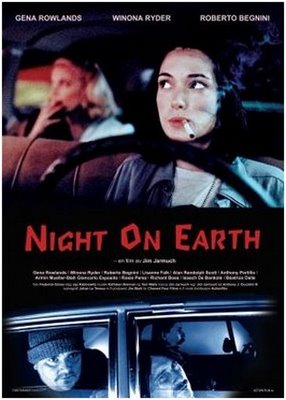
NIGHT ON EARTH
** (Worth seeing)
Directed and written by Jim Jarmusch
With Winona Ryder, Gena Rowlands, Giancarlo Esposito, Armin Mueller-Stahl, Rosie Perez, Isaach de Bankolé, Beatrice Dalle, Roberto Benigni, and Matti Pellonpaa.
As the most popular American independent filmmaker around, Jim Jarmusch carries a special burden: his reputation makes his work particularly hard to evaluate. Other American independents who haven’t enjoyed his commercial success — he’s the only independent who comes to mind who works mainly in 35-millimeter and owns all his own pictures — envy and even resent him, questioning whether he offers a serious alternative to the commercial mainstream. Indeed, Jarmusch has come to be so identified with artistic freedom that it’s difficult to see how any of his movies can live up to his reputation.
“Jim Jarmusch’s planet is the Lower East Side,” began Karen Schoemer in an awestruck feature in the New York Times late last month. “Its bars, its bodegas and its pavement make up his home, his office and his hangout.” “The director finds drama in the ordinary” reads a pull quote in the following hagiography, and clearly so does the Times: it finds a special magic and potency in a run-down neighborhood simply because Jarmusch lives there. Read more
From the Chicago Reader (April 26, 2002). — J.R.
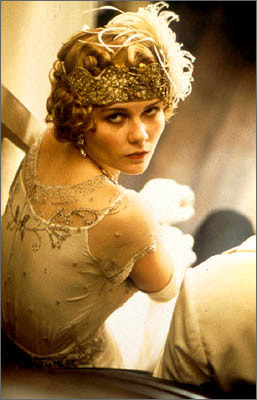
The Cat’s Meow
*** (A must-see)
Directed by Peter Bogdanovich
Written by Steven Peros
With Kirsten Dunst, Cary Elwes, Edward Herrmann, Eddie Izzard, Joanna Lumley, Jennifer Tilly, Victor Slezak, James Laurenson, and Claudia Harrison.

ORSON WELLES: In the original script [of Citizen Kane] we had a scene based on a notorious thing Hearst had done, which I still cannot repeat for publication. And I cut it out because I thought it hurt the film and wasn’t in keeping with Kane’s character. If I’d kept it in, I would have had no trouble with Hearst. He wouldn’t have dared admit it was him.
PETER BOGDANOVICH: Did you shoot the scene?
ORSON WELLES: No, I didn’t. I decided against it. If I’d kept it in, I would have bought silence for myself forever. — This Is Orson Welles
I edited This Is Orson Welles, a series of interviews Peter Bogdanovich did with Welles, at the request not of Bogdanovich but of Oja Kodar, Welles’s companion and collaborator for the last 20-odd years of his life, to whom Welles had willed the rights. The incident Welles alluded to in this exchange is the subject of The Cat’s Meow, directed by Bogdanovich and adapted by Steven Peros from his own play. Read more
From the Chicago Reader (February 28, 1997). — J.R.
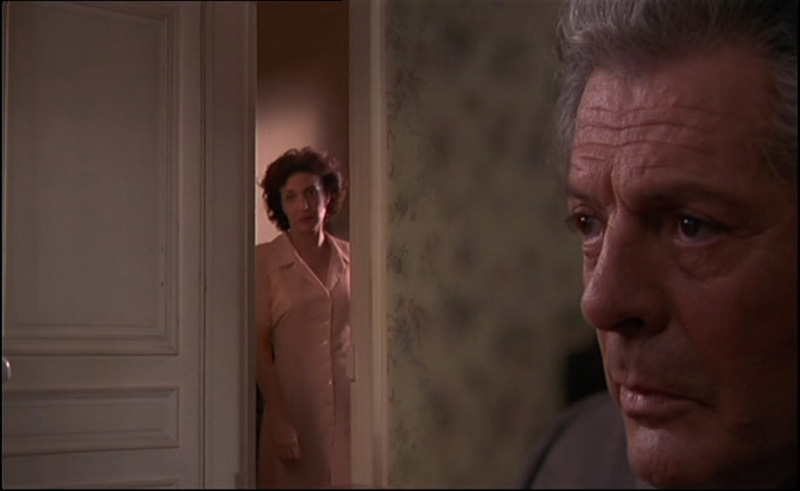
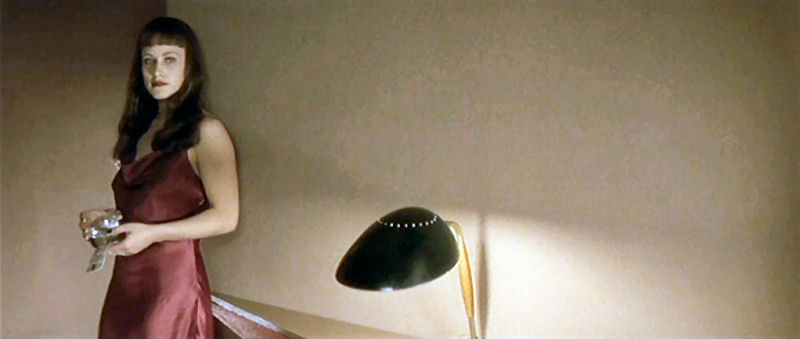
Three Lives and Only One Death
Rating *** A must see
Directed by Raul Ruiz
Written by Ruiz and Pascal Bonitzer
With Marcello Mastroianni, Anna Galiena, Marisa Paredes, Melvil Poupaud, Chiara Mastroianni, Arielle Dombasle, Feodor Atkine, and Lou Castel.
Lost Highway
Rating *** A must see
Directed by David Lynch
Written by Lynch and Barry Gifford
With Bill Pullman, Patricia Arquette, Balthazar Getty, Michael Massee, Robert Blake, Gary Busey, Lucy Butler, Robert Loggia, and Richard Pryor.

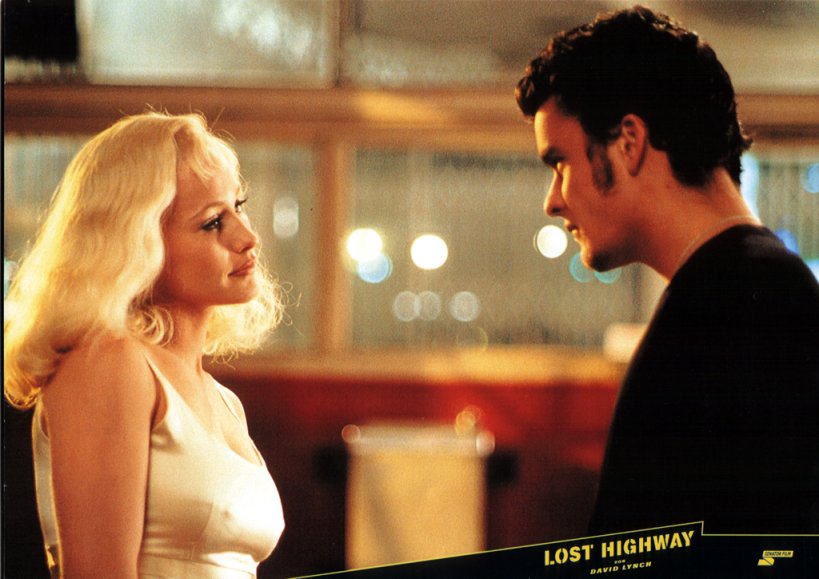
By coincidence, two major features by two of the most talented postsurrealist filmmakers open this week, both convoluted parables about heroes with multiple identities. Though Raul Ruiz and David Lynch are separated by a world of differences — political, cultural, national, intellectual, and temperamental — both are expanding the options in filmmaking as well as filmgoing. Each offers a different kind of roller-coaster ride that manages to be bewildering, provocative, kaleidoscopic, scary, visually intoxicating, and funny.
Ruiz — a Chilean who moved to Paris in 1974 and who makes movies all over the world (in France, Italy, Taiwan, and the U.S. in the past year alone) — has made 90-odd films and videos to date, though he’s only five years older than Lynch. Read more








